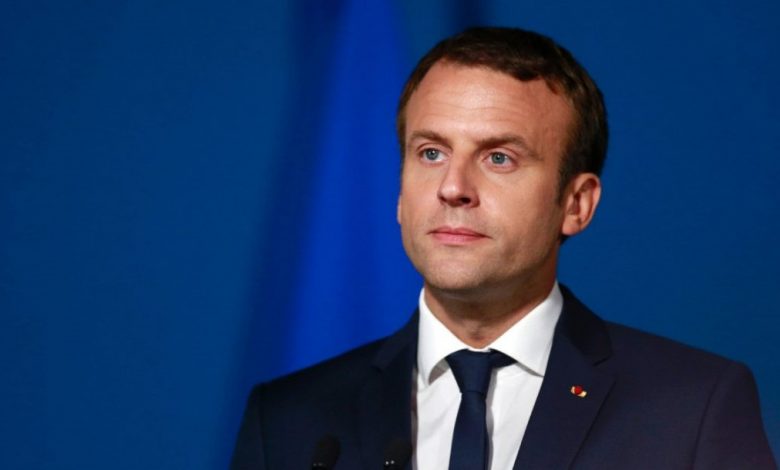
President Emmanuel Macron will travel to the Mauritanian capital, Nouakchott, next week for a summit of West African leaders to discuss the tough campaign against jihadists in the Sahel region, his office said on Friday.
According to AFP news agency, Macron will make the trip to the West African desert state on Tuesday for face-to-face talks with the leaders of Niger, Chad, Mauritania, Burkina Faso and Mali — countries which contribute to the G5 Sahel force fighting a growing Islamist insurgency.
The G5 force works with the over 5,000-strong French Barkhane force which has been deployed in the region for the last seven years but has encountered increasing resistance from jihadists.
The meeting in Mauritania comes six months after a summit in the French city of Pau, where the leaders vowed to intensify the fight against jihadists.
After the Nouakchott meeting, the six leaders will hold video talks with other key figures, including European Council President Charles Michel and German Chancellor Angela Merkel, said a French presidential official, who asked not to be named.
The effects of terrorism have enormously impacted negatively on development and also diverted resources designed for other projects to fight terrorism and rebuilding of infrastructure as well as relief services. While deaths, injuries and capital destruction are the most visible effects of terrorist attacks, fear, violence, uncertainty and indirect effect of terror are harmful to the economy in the long-term.
Terrorism has contentiously affected the global village where there is interconnectedness of activities, including trade routes, which has significant fiscal effects on both direct and indirect growth.
Half a year following the Pau summit, the security situation is getting better but remains “deeply fragile”, according to French Defence Minister Florence Parly.
The summit comes after France earlier this month claimed one of the biggest successes of its deployment — the killing of the head of Al-Qaeda in the Islamic Maghreb (AQIM), Abdelmalek Droukdel.
Operations have also intensified in the region on the borders of Mali, Burkina Faso and Niger seen as a sanctuary for fighters of the Islamic State in the Greater Sahara (IS-GS).
The IS-GS was designated in January as the number one enemy of France’s Barkhane and has itself been fighting Al-Qaeda affiliated groups.
AFP reports that Macron earlier this year signalled that all the options were on the table for the future of the French force, including withdrawal. But now officials in Paris emphasise that while French troops will not be there forever, it is too early to pull out.
The president’s predecessor, Francois Hollande, launched the deployment in 2013 to chase out jihadists linked to Al-Qaeda who had overrun key northern cities in Mali.
At the Pau talks in January, Macron and Sahel leaders discussed growing dissatisfaction on the ground with France’s military presence.
Local protests and criticism of the Barkhane force have riled French officials, not least after 13 soldiers were killed in a helicopter collision in Mali in
December, 2019, while pursuing jihadist fighters — the deadliest toll for the French military in nearly four decades.
Macron has said he is wary to send soldiers to countries where their presence is not “clearly wanted”, saying in December: “we need the political conditions to accompany the military work we do.”
Support Our Journalism
There are millions of ordinary people affected by conflict in Africa whose stories are missing in the mainstream media. HumAngle is determined to tell those challenging and under-reported stories, hoping that the people impacted by these conflicts will find the safety and security they deserve.
To ensure that we continue to provide public service coverage, we have a small favour to ask you. We want you to be part of our journalistic endeavour by contributing a token to us.
Your donation will further promote a robust, free, and independent media.
Donate HereStay Closer To The Stories That Matter




